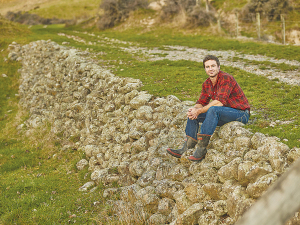Editorial: RMA reforms uproar
OPINION: The euphoria over the Government’s two new bills to replace the broken Resource Management Act is over.
 Marlborough sheep and beef farmer, Richard Dawkins is Federated Farmers’ new national meat & wool chair.
Marlborough sheep and beef farmer, Richard Dawkins is Federated Farmers’ new national meat & wool chair.
OPINION: The 'Save Our Sheep' campaign is built on a foundation of structure, integrity, and evidence from the Federated Farmers Meat and Wool Council.
Like other commentators, we want thriving rural communities and resilient supply chains - but that future won't be built on policy illusions.
Our Council isn't a fringe group venting frustration. We comprise 24 elected farmers from across New Zealand who contribute huge volunteer hours for the good of our industry and country. The farm businesses of these men and women are diverse - from fine wool to Wiltshires, milking sheep to goats, beef cattle to farm forestry, value-added enterprises to agritourism.
We also debate rigorously, but respectfully, and draw advice from Federated Farmers' in-house policy team before forming official positions.
For example, take the wholesale conversion of sheep and beef farms to carbon forestry - a key motivator for the SOS campaign. In their current form, carbon credits function more as a licence to pollute than a meaningful emissions reduction tool.
This is especially the case in New Zealand, where fossil fuel emitters can offset 100% of their emissions via carbon credits. Ironically, not only does the company not need its emission behaviour, but the cost of this forestry investment is likely passed on to its consumers.
In plain terms, the price gets socialised and the credit gets privatised.
Adding to that conundrum is the 'double dipping' that's occurring. When a company plants trees and claims carbon neutrality, it then sells of surrenders those emissions units (NZUs).
Meanwhile, the NZ Government also reports this sequestraation as part of its national emissions inventory. Additionally, there are now fewer livestock being farmed, which also supports the Government's efforts to reduce emissions.
This three-way fallacy has resulted in the loss of 300,653 hectares of farmland since 2017. This large-scale land-use shift is hollowing out rural communities. As stock units decline and jobs disappear, towns lose the critical mass needed to support schools, clinics, and local businesses.
It's not because farmers failed to adapt; it's because the policy framework subsidises carbon forestry.
The subsequent artificially inflated land values raise the barrier to farm ownership. Higher fixed costs mean larger-scale and bigger businesses are required to break even - these affect new entrants and family farms more than others.
Our Meat and Wool Council proposes a range of actions. These include removing incentived for carbon in 100% offsetting to level the playing field, and integrating trees into farm businesses to improve environmental outcomes and animal welfare.
We support increasing Crown Pastoral Leases to earn export income and improve weed and pest management. We also back recognition of the warming impact of methane - and the progress our sector's made in reducing it. Let's champion our industry, and promote our unique sustainable approach on the international stage.
That said, the Government won't save us - our commercial entities must lift their game. Strong wool requires investment and structures to achieve profitability and fair returns. The red meat sector must become nimbler and more efficient.
Long-term profitability will only come through strategic partnerships across the industry.
At the same time, government policies must support - not undermine - the sheep and beef sector. Until that happens, Save Our Sheep will continue to push for change.
Polished corporate narratives may sound convincing, but they often ignore on-farm realities. Quite simply, observing without objecting is a form of endorsement.
We're observing the landscape of New Zealand and the face of our industry changing, but our Meat and Wool Council are also objecting. We do not endorse the status quo.
To critics who struggle to see where we're coming from, try listening to the substance behind our stance. Ask why farmers are pushing back, what's driving the shifts in land uses, and who stands to gain - and who loses.
Understanding won't always change the outcome but it raises the standard of the conversation - and the credibility of those willing to join it.
Richard Dawkins, a Marlborough sheep and beef farmer, is Federated Farmers' new national meat & wool chair.
Global trade has been thrown into another bout of uncertainty following the overnight ruling by US Supreme Court, striking down President Donald Trump's decision to impose additional tariffs on trading partners.
Controls on the movement of fruit and vegetables in the Auckland suburb of Mt Roskill have been lifted.
Fonterra farmer shareholders and unit holders are in line for another payment in April.
Farmers are being encouraged to take a closer look at the refrigerants running inside their on-farm systems, as international and domestic pressure continues to build on high global warming potential (GWP) 400-series refrigerants.
As expected, Fonterra has lifted its 2025-26 forecast farmgate milk price mid-point to $9.50/kgMS.
Bovonic says a return on investment study has found its automated mastitis detection technology, QuadSense, is delivering financial, labour, and animal-health benefits on New Zealand dairy farms worth an estimated $29,547 per season.

OPINION: Here w go: the election date is set for November 7 and the politicians are out of the gate…
OPINION: ECan data was released a few days ago showing Canterbury farmers have made “giant strides on environmental performance”.